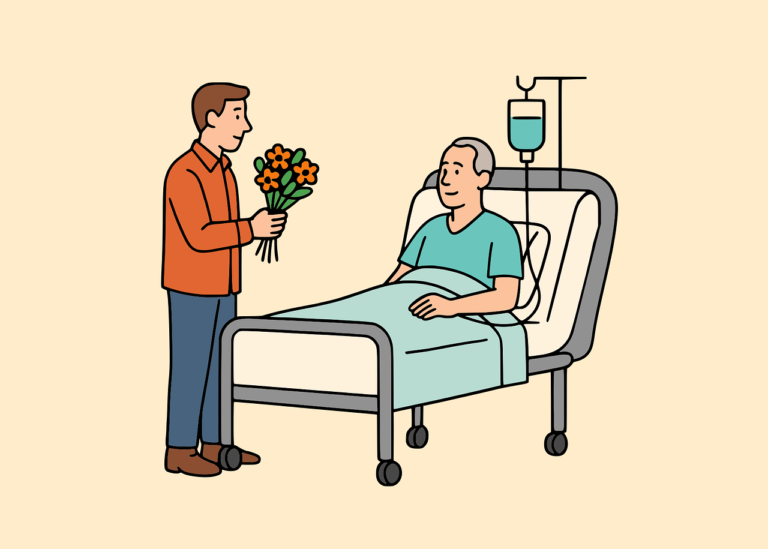Book Appointment Now

Exploring the Psychological Impact of Shift Work on Nurses
The psychological impact of shift work on nurses is a critical topic in healthcare, given the demanding and unpredictable nature of their schedules. Nurses often work irregular hours, including night and rotating shifts, which can disrupt their circadian rhythms and have profound effects on their mental health. Studies have shown that these disruptions can lead to chronic stress, anxiety, depression, and burnout (Wagstaff & Sigstad Lie, 2019). Furthermore, the challenges of maintaining a work-life balance and coping with physical and emotional fatigue contribute to lower job satisfaction and high turnover rates. By examining the psychological consequences of shift work, this discussion seeks to highlight its impact on nurses’ well-being and propose strategies to address these challenges effectively.
Our nursing experts can deliver 100% custom paper about psychological impact of work shifts on nurses according to your order instructions.
Write my nursing essay
Shift Work and Circadian Rhythm Disruption
The human body operates on a biological clock, known as the circadian rhythm, which regulates sleep-wake cycles, hormone production, and other essential physiological processes. Shift work disrupts this rhythm, forcing individuals to function during times typically reserved for rest. Research by Hittle and Andreotta (2020) highlights that nurses working irregular shifts are more likely to experience chronic sleep deprivation, leading to fatigue, impaired cognitive function, and mood disturbances.
Night shifts, in particular, have been shown to increase the risk of sleep disorders, such as insomnia and shift work sleep disorder (SWSD). SWSD affects up to 40% of shift workers, causing excessive sleepiness during working hours and difficulty sleeping during rest periods (Drake & Wright, 2018). The cumulative effect of poor sleep quality is linked to heightened levels of stress, anxiety, and depression among nurses.
Mental Health Implications
Stress and Burnout
Shift work places significant stress on nurses, both physically and emotionally. According to Caruso et al. (2019), the irregularity of schedules leads to difficulties in achieving work-life balance, which contributes to chronic stress. Prolonged exposure to stress is a leading cause of burnout, a state characterized by emotional exhaustion, depersonalization, and reduced personal accomplishment. Burnout among nurses not only impacts their mental health but also reduces the quality of patient care.
A 2021 study by Lin et al. found that nurses working rotating shifts reported higher levels of burnout compared to their counterparts with fixed daytime schedules. The unpredictability of shift work often results in a lack of control over personal time, intensifying feelings of frustration and helplessness.
Anxiety and Depression
Nurses engaged in shift work are at a greater risk of developing anxiety and depression. A meta-analysis conducted by Wagstaff and Sigstad Lie (2019) revealed that night shifts and rotating schedules significantly increase the likelihood of depressive symptoms among healthcare professionals. The combination of sleep disruption, social isolation, and heightened occupational stress creates a perfect storm for mental health challenges.
For instance, night shifts often leave nurses feeling isolated from family and friends due to their inability to participate in regular social activities. This sense of disconnection exacerbates feelings of loneliness, which are strongly associated with depression.
Job Satisfaction and Retention
Impact on Job Satisfaction
The psychological toll of shift work directly influences nurses’ job satisfaction. According to Trinkoff et al. (2020), nurses working extended or irregular hours report lower levels of job satisfaction compared to those with stable schedules. Dissatisfaction often stems from the inability to maintain a consistent work-life balance, as well as the physical and emotional exhaustion caused by shift work.
Moreover, irregular hours limit opportunities for professional development, as nurses working night shifts or rotating schedules may find it challenging to attend training sessions or pursue further education. This lack of growth prospects contributes to feelings of stagnation and dissatisfaction in the workplace.
High Turnover Rates
The challenges associated with shift work contribute to high turnover rates in the nursing profession. A study by Dall’Ora et al. (2021) found that nurses working night shifts were 25% more likely to leave their jobs within a year compared to those with day shifts. High turnover rates not only strain healthcare organizations but also increase the workload and stress levels of remaining staff, creating a vicious cycle of dissatisfaction and burnout.
Also read:
- BUS 519 Project Risk Management Risk Workshop and Risk Register
- Compassion fatigue/work burnout in nursing practice
- HCS 455 UP Wk 5 Health Care Employee Burnout
- PSY 565 Topic 8 Job Stress and Burnout
Coping Mechanisms and Interventions
Organizational Strategies
Healthcare organizations play a crucial role in mitigating the psychological impact of shift work on nurses. Implementing evidence-based scheduling practices, such as limiting consecutive night shifts and ensuring adequate rest periods, can significantly improve nurses’ well-being. The American Nurses Association (ANA) recommends that nurses work no more than 12 hours per shift and have at least 8 hours of rest between shifts to reduce fatigue and stress (ANA, 2020).
Flexible scheduling options, such as self-scheduling or shift-swapping, empower nurses to regain control over their work-life balance. For example, a pilot program in a New York hospital allowed nurses to design their schedules, resulting in a 20% reduction in reported stress levels (Bae & Fabry, 2021).
Individual Coping Strategies
On a personal level, nurses can adopt strategies to manage the challenges of shift work. Maintaining a consistent sleep schedule, even on days off, helps stabilize circadian rhythms. The use of blackout curtains and white noise machines can create an optimal sleep environment for nurses working night shifts.
Engaging in regular physical activity and mindfulness practices, such as yoga or meditation, has been shown to reduce stress and improve mental health (Hansen et al., 2019). Additionally, seeking support from peers or professional counseling services can help nurses navigate the emotional challenges associated with shift work.
Implications for Patient Care
The psychological impact of shift work on nurses extends beyond individual well-being, affecting the quality of patient care. Fatigued nurses are more prone to errors, which can compromise patient safety. A study by Lockley et al. (2019) found that the risk of medical errors increased by 36% after a 12-hour night shift compared to an 8-hour day shift.
Furthermore, nurses experiencing burnout or mental health challenges may struggle to provide empathetic and patient-centered care. Addressing the psychological impact of shift work is therefore essential not only for nurses’ well-being but also for maintaining high standards of healthcare delivery.
Shift work is an integral part of the nursing profession, yet it comes with significant psychological consequences that affect mental health, job satisfaction, and patient care. Disrupted circadian rhythms, chronic stress, and social isolation contribute to increased levels of burnout, anxiety, and depression among nurses. These challenges also lead to lower job satisfaction and higher turnover rates, posing a threat to healthcare systems worldwide.
References
- American Nurses Association (2020). Position Statement on Nurse Fatigue and Shift Work.
- Bae, S. H., & Fabry, D. (2021). Scheduling practices and their impact on nurse stress: A pilot program. Journal of Nursing Management, 29(2), 120-126.
- Caruso, C. C., Baldwin, C. M., Berger, A., et al. (2019). Impact of shift work on nurse health and safety. Occupational Medicine Quarterly Journal, 69(1), 43-51.
- Dall’Ora, C., Ball, J., Recio-Saucedo, A., & Griffiths, P. (2021). Shift work and its impact on nursing turnover: A longitudinal study. BMJ Open, 11(7), e045982.
- Drake, C. L., & Wright, K. P. (2018). Shift work sleep disorder: Prevalence, impact, and management strategies. Journal of Clinical Sleep Medicine, 14(5), 801-805.
- Hittle, B., & Andreotta, M. (2020). Circadian rhythm disruption and its effects on nurse well-being. Nursing Times, 116(10), 25-28.
- Hansen, N., Lassen, M., & Andersen, T. (2019). The role of mindfulness in reducing burnout among nurses. Journal of Occupational Health, 61(3), 155-163.
- Lin, P., Chen, Y., & Lin, H. (2021). Night shifts and burnout in healthcare professionals: A comparative study. Journal of Nursing Research, 29(4), e171.
- Lockley, S. W., Landrigan, C. P., & Czeisler, C. A. (2019). Shift work and patient safety: The link between fatigue and errors. New England Journal of Medicine, 380(24), 2378-2386.
- Trinkoff, A. M., Johantgen, M., & Storr, C. L. (2020). Extended work hours and their impact on nurse job satisfaction. Nursing Outlook, 68(3), 245-253.
- Wagstaff, A. S., & Sigstad Lie, J. A. (2019). Shift work and mental health: A systematic review. Scandinavian Journal of Work, Environment & Health, 45(3), 229-240.







